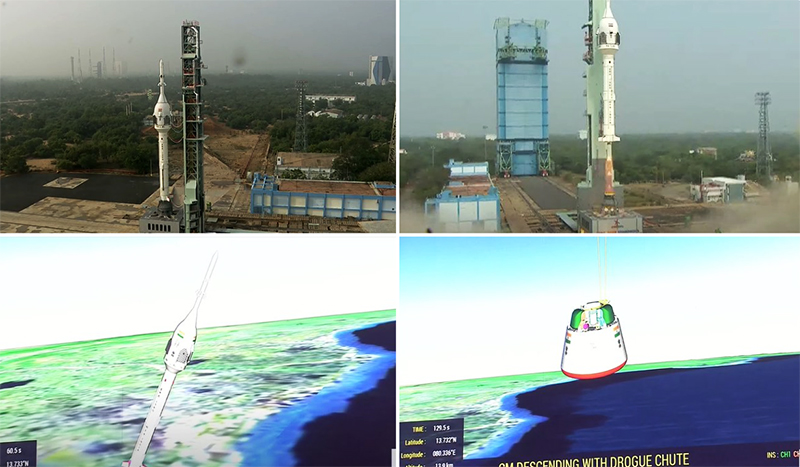The Indian Space Research Organisation's unmanned test flight for the inaugural human spaceflight mission, Gaganyaan, took off from Sriharikota on Saturday (October 21, 2023), marking a significant milestone in India's ambitious space program.
This flight abort test aimed to assess the effectiveness of the vehicle's crew escape system. The module has been designed to be deployed in the event of an emergency requiring the ejection of astronauts.
"We are very happy to announce the success of the mission. The purpose of the mission was to demonstrate the crew escape system. The vehicle went slightly above the speed of sound, before it initiated the crew escape system," Chairman of the Indian Space Research Organisation S Somanath said from the mission centre.
"The escape system took the crew module away from the vehicle and subsequent operations including the touch-down at the sea have been very well accomplished," he added.
Somanath stated that the agency is currently in the process of recovering the crew modules from the sea.
The Test Vehicle D1 mission was initially slated for liftoff from the first launch pad at 8 am, but this was later revised to 8:45 am. However, just 5 seconds before the scheduled launch, the countdown was halted. ISRO identified the cause and successfully executed the test at 10 am.
Prime Minister Narendra Modi lauded ISRO's success, saying it brought "one step closer to realising India’s first human space flight program".
Science Minister Dr Jitendra Singh said, "This is the first step in the last leg of journey towards India’s Crewed Human Spacecraft mission #Gaganyaan."
India's capabilities in human spaceflight will be showcased in the upcoming Gaganyaan mission, set to launch in 2024. Additionally, the country has plans to establish a space station by 2035, and is also working on a Venus orbiter and a Mars lander.

